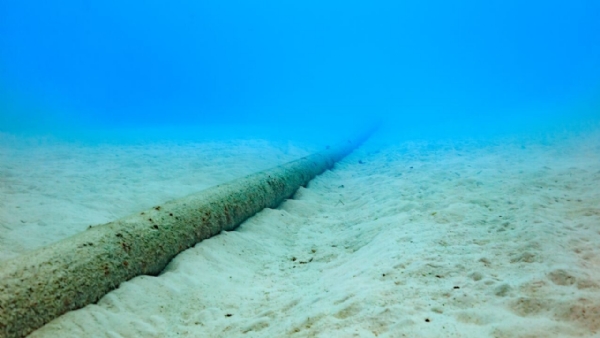Nari Shakti: Indian Army to launch 2 sports companies for girls
The Indian Army is establishing two Army Girls Sports Companies (AGSC) at Army Marksmanship Unit, Mhow and Army Sports Institute, Pune. The AGSCs will train young girls in shooting, archery, athletics, boxing, and weightlifting, providing them with formal education and opportunities for recruitment as non-commissioned officers.
India-Japan to give momentum to defence & investment ties
Jaishankar exhorts Japan to explore investment opportunities including in infra keeping with India’s pace.
World At War: Ukraine War,Hamas War-Lessons or India
The New Cold War: China Takes on Europe
For decades, China fooled the world into believing it was merely another nation looking to embrace economic partnerships and fuel a rising standard of living. While China’s predatory electric vehicle practices are relatively new, China has undermined free societies for years. Free societies around the world, especially those in Europe, must expose the threats posed by the Chinese Communist Party and then move decisively to counter them.
Red Sea Cable Damage Reveals Soft Underbelly of Global Economy
Indian Navy Chief of Naval Staff Admiral R Hari Kumar has stated that Houthis are targeting merchant ships belonging to Israel, the US, or the UK in the Red Sea with drones and missiles, causing a "not very good" situation. The Indian Navy is providing protection primarily to India-flagged ships and other vessels seeking assistance.

Recent damage to three undersea cables in the Red Sea highlights that there are no easy solutions for protecting critical undersea infrastructure. Governments and companies can take steps to improve resilience and enhance maritime awareness.The damage to the cables in the Red Sea demonstrate the vulnerability of vital undersea infrastructure. The difficulty of defending such vast networks and deterring ambiguous attackers means this threat is here to stay. While there are no easy solutions for protecting this soft underbelly of the global economy, public authorities and private companies can take practical steps to improve resilience and enhance maritime awareness. New technology and improved public-private cooperation can help governments, in the words of the U.S. Navy’s project PROTEUS, “collaboratively discover and investigate suspicious and illegal maritime activity throughout the world in ways never before possible AND THEN PUNISH THE GUILTY..”
The Role of the Space Domain in the Russia-Ukraine War: The Impact of Converging Space and AI Technologies
The ongoing conflict in Ukraine, stemming from Russia's aggressive invasion in February 2022, has evolved into a protracted battle marked by substantial casualties and a relentless pursuit of technological advantages. Amidst the rapid advancements in artificial intelligence (AI) and drone technologies, the significance of outer space has become increasingly pronounced. Space operations now play a crucial role in supporting Ukraine's resistance efforts against the invading Russian forces.
Furthermore, space capabilities serve as real-time documentation tools for the conflict, transforming space into a domain where both state and non-state actors, such as private companies and NGOs, actively influence the dynamics and outcomes of the conflict. This trend is underscored by the growing convergence of space technology with AI, aligning with a broader global effort to digitize the command, control, and execution of multi-domain operations.
While this convergence was underway before the conflict, the invasion of Ukraine has provided an opportunity to test emerging technological concepts and tactics that leverage the synergy of space and AI technologies. Simultaneously, the increasing dependence on interconnected space-based systems and infrastructure has introduced new vulnerabilities that adversaries may exploit to disrupt, coerce, or launch attacks. This interconnectedness poses a risk of the conflict extending into orbit or across borders, affecting national security.
In light of these developments, this article scrutinizes the role of the space domain in the Russia-Ukraine war, examining how space has influenced the conflict and delving into the combined use of space technology and AI. The analysis covers the direct contributions of satellite communications (SATCOM), positioning, navigation, and timing (PNT), as well as Earth observation (EO) services.
Ukraine and the Debacle of Russian Soft Power
The conflict in Ukraine has underscored Russia's inability to pursue its foreign policy objectives solely through soft power channels, revealing significant shortcomings in its ability to attract and persuade. Particularly, Russia's soft power approach in Ukraine, centered on the concept of the 'Russian world' (Russkiy Mir), failed to sway Kyiv towards Moscow's alignment through peaceful means.
Concurrently, the European Union's soft power initiatives, advocating for a 'Greater Europe' and promoting Ukrainian 'Europeanness' grounded in liberal-democratic values and economic advancement, curtailed the influence of Russia's soft power endeavors in Ukraine. Unlike genuine attraction, Russian soft power in Ukraine was more akin to propaganda, serving to justify expansionist agendas and blurring the lines with hard power dynamics.
Following the 2022 invasion, in the occupied territories, Moscow's influence relied heavily on coercion, serving as a supplement to hard power tactics through a fusion of smart and sharp power strategies. A comparative analysis of Russian and EU soft power dynamics in Ukraine underscores the latter's generally greater persuasive impact, compelling Moscow to resort to military intervention.
--

No comments:
Post a Comment